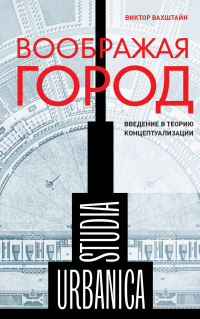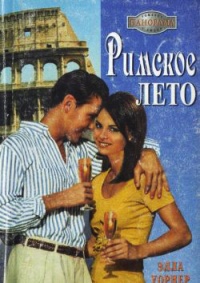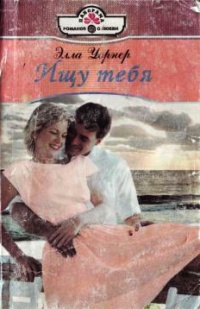Читать книгу - "Воображая город. Введение в теорию концептуализации - Виктор Вахштайн"
Аннотация к книге "Воображая город. Введение в теорию концептуализации - Виктор Вахштайн", которую можно читать онлайн бесплатно без регистрации
Douglas M., Isherwood B. The World of goods. London: Routledge, 1996.
Dovey K. Becoming places: Urbanism / Architecture / Identity / Power. London: Routledge, 2010.
Duany A., Plater-Zyberk E., Speck J. Suburban nation: the rise of sprawl and the decline of the American Dream. New York: North Point Press, 2000.
Erofeeva M. On multiple agencies: when do things matter? // Information, Communication and Society. 2019. № 22.
Gang G. et al. Polis station film by spirit of space. 2015.
Gans H. The Levittowners. Ways of life and politics in a new suburban community. London: Penguin Press, 1967.
Gans H. The Urban Villagers. New York: Free Press, 1962.
Geertz C. The interpretation of cultures. New York: Basic Books, 1973.
Gehl J. Cities for people. Copenhagen: Island Press, 2010.
Gehl J., Svarre B. How to study public life? Copenhagen: Island Press, 2013.
Georg Simmel Gesamtausgabe. Frankfurt a.M.: Suhrkamp, 1992.
Glazer B., Strauss A. Awareness contexts and social interaction // Symbolic Interaction: A Reader in Social Psychology. Boston: Ally and Bacon, 1972.
Goffman E. Asylums: Essays on the Social Situation of Mental Patients and Other Inmates. New York: Doubleday, 1961.
Goffman E. Behavior in public places. New York: Glencoe, 1963.
Goffman E. On facework // Goffman E. Interaction Ritual. New York, 1967.
Grazian D. Urban nightlife, social capital, and the public life of cities // Sociological Forum. 2009. Vol. 24. № 4.
Gregor N. A Schicksalsgemeinschaft? Allied bombing, civilian morale, and social dissolution in Nuremberg, 1942–1945 // Historical Journal. 2000. № 43.
Greimas A. J., Courtés J. Semiotics and language: an analytical dictionary. Bloomington, IN: Indiana University Press, 1982.
Guy S., Coutard O. STS and the City. Politics and Practices of Hope // Science, Technology and Human Values. 2007. № 32 (6).
Hackworth J. The Neoliberal city: governance, ideology and development in American Urbanism. New York: Cornell University Press, 2000.
Hägerstrand T. Space, time and human conditions // Dynamic allocation of urban space Farnborough: Saxon House, 1975.
Hall E. T. The Dance of Life. The Other Dimension of Time. New York: Doubleday, 1983.
Harary F., Norman R., Cartwright D. Structural Models. New York: Wiley, 1965.
Harleian miscellany; or, a collection of scare, curious, and entertaining pamphlets. London: Printed for Robert Dutton, 1810.
Harrison M. An economist looks at suicide terrorism // World Economics. 2006. № 3.
Harrison M. Response to Mateucci // World Economics. 2007. № 1.
Hetherington K. The Badlands of modernity: Heterotopia and social ordering. London, Psychology Press, 1997.
Hettner A. Die Geographie. Ihre Geschichte, ihr Wessen, ihre Methoden. Breslau: Ferdinand Hirt, 1927.
Hohenberg P. M., Lees L. H. The Making of urban Europe, 1000–1950. Cambridge, MA: Harvard University Press, 1985.
Holston J. The modernist city: an anthropological critique of Brasilia. Chicago: University of Chicago Press, 1989.
Høstaker R. Latour – Semiotics and Science Studies // Science Studies. 2005. № 2.
How to get the baby phone toy to curse. 2010. https://www.youtube.com/watch?v= ebv51QNm2Bk.
Husserl E. Experience and judgment, London: Routledge, 1972.
Jacobsen M., Antoft R., Jørgensen A. Chicago vice and virtue: the poetic imagination meets the sociological imagination // Imaginative methodologies in the social sciences. Farnham: Ashgate, 2014.
Jameson F. On Goffman’s Frame Analysis. Reading Goffman’s framing as a provocation of a discipline // Sage masters of modern social thought. Vol. III. London: Sage Publications, 2000.
Johnson C. Creating the perfect town // CBS News. May 20. 2007. https://www.cbsnews.com/news/creating-the-perfect-town/.
Keizer K., Lindenberg S., Steg L. The spreading of disorder // Science. 2008. Т. 322. № 5908.
Kelly S. Flotation phone cuts off the world. 2003. http://news.bbc.co.uk/2/hi/technology/3103616.stm.
Kerr J. The Debate on Sanctuary Cities. 2019.
Keyes L. C. The rehabilitation planning game. Cambridge, Mass.: MIT Press, 1969.
Kittler F. The city is a medium // New Literary History. 1996. № 27 (4).
Klowait N. O. Interactionism in the age of ubiquitous telecommunication // Information, Communication and Society. 2019. № 22.
Kohn E. How forests think: Toward an anthropology beyond the human. Berkeley: University of California Press, 2013.
Korzybski A. Science and sanity: An introduction to non-aristotelian systems and general semantics. Los Angeles: UCLA Press, 1933.
Latour B. An Inquiry into modes of existence. Cambridge, MA: Harvard University Press, 2013.
Latour B. Gabriel Tarde and the end of the Social // The Social in Question / Ed. by P. Joyce. London: Routledge, 1999.
Latour B. The Whole is always smaller than its parts’. A digital test of Gabriel Tarde’s monads // British Journal of Sociology. 2012. Vol. 63 № 4.
Latour B. Trains of thought: Piaget, formalism and the fifth dimension // Common knowledge. 1997. № 6 (3).
Latour B., Woolgar S. Laboratory life: the construction of scientific facts. NJ.: Princeton University Press, 1979.
Laurier E. et all. Walking in the time of COVID-19 // Research on Language and Social Interaction. 2020. https://rolsi.net/2020/05/05/guest-blog-walking-in-the-time-of-covid-19.
Laurier E., Whyte A., Buckner K. Neighbouring as an occasioned activity: «finding a lost cat» // Space and Culture. 2002. № 5 (4).
Lefebvre H. Rythmanalysis. Space, Time and Everyday Life. London, New York: Continuum, 2004.
Li D. K. University of Miami professor resigns after reportedly sharing porn bookmark on Zoom. 2020. https://www.nbcnews.com/news/us-news/university-miami-professor-resigns-after-reportedly-sharing-porn-bookmark-zoom-n1195746.
Liberman K. More studies in ethnomethodology. NY.: State University of New York Press, 2013.
Прочитали книгу? Предлагаем вам поделится своим впечатлением! Ваш отзыв будет полезен читателям, которые еще только собираются познакомиться с произведением.
Оставить комментарий
-
 Олена кам22 декабрь 06:54
Слушаю по порядку эту серию книг про Дашу Васильеву. Мне очень нравится. Но вот уже третий день захожу, нажимаю на треугольник и ничего не происходит. Не включается
Донцова Дарья - Дантисты тоже плачут
Олена кам22 декабрь 06:54
Слушаю по порядку эту серию книг про Дашу Васильеву. Мне очень нравится. Но вот уже третий день захожу, нажимаю на треугольник и ничего не происходит. Не включается
Донцова Дарья - Дантисты тоже плачут
-
 Вера Попова27 октябрь 01:40
Любовь у всех своя-разная,но всегда это слово ассоциируется с радостью,нежностью и счастьем!!! Всем добра!Автору СПАСИБО за добрую историю!
Любовь приходит в сентябре - Ника Крылатая
Вера Попова27 октябрь 01:40
Любовь у всех своя-разная,но всегда это слово ассоциируется с радостью,нежностью и счастьем!!! Всем добра!Автору СПАСИБО за добрую историю!
Любовь приходит в сентябре - Ника Крылатая
-
 Вера Попова10 октябрь 15:04
Захватывает,понравилось, позитивно, рекомендую!Спасибо автору за хорошую историю!
Подарочек - Салма Кальк
Вера Попова10 октябрь 15:04
Захватывает,понравилось, позитивно, рекомендую!Спасибо автору за хорошую историю!
Подарочек - Салма Кальк
-
 Лиза04 октябрь 09:48
Роман просто супер давайте продолжение пожалуйста прочитаю обязательно Плакала я только когда Полина искала собаку Димы барса ♥️ Пожалуйста умаляю давайте еще !))
По осколкам твоего сердца - Анна Джейн
Лиза04 октябрь 09:48
Роман просто супер давайте продолжение пожалуйста прочитаю обязательно Плакала я только когда Полина искала собаку Димы барса ♥️ Пожалуйста умаляю давайте еще !))
По осколкам твоего сердца - Анна Джейн





